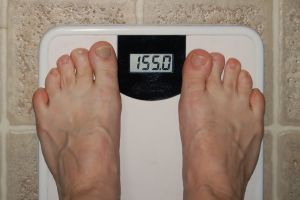Vitamin D Deficiency and Weight Loss - Can You Correct Vitamin D and Weight Gain Becomes a Thing of Your Past?
| Share on Facebook | Share on Twitter | Share on Google+ |
One of the hottest topics in nutritional science is the relationship between vitamin D deficiency and weight loss. The idea of being able just to take a vitamin pill and watch the fat fall off is appealing to all would-be weight loss dieters.
The reality of vitamin D deficiency and weight gain seems to be, however, that it's the weight gain that causes the vitamin D deficiency, rather than the other way around. However, it's still a good idea to take supplemental vitamin D even though you need to rely on other methods to lose weight. And if you are happy with your weight as it is, you need supplemental vitamin D to make up for deficiency!
Women, Vitamin D Deficiency, and Weight Gain
The relationship between vitamin D deficiency and weight gain has been studied closely in women. Among women with weight problems, vitamin D deficiency is common no matter how many vitamin D-rich foods they consume. In a study conducted in Spain, nearly 90 per cent of women who were obese were also deficient in vitamin D.
The reason for vitamin D deficiency in these women is that the vitamin is fat-soluble. When the skin makes the vitamin D, the fat just below the skin captures it and keeps it from going into general circulation. Add to this the fact that heavier women (and men) tend to spend less time in the sun, and vitamin D deficiency is not a real surprise.
Women, Vitamin D Deficiency, and Weight Loss Surgery
Vitamin D deficiency is even more acute in women who have had bariatric surgery to lose weight, and osteoporosis due to a combination of phosphorous, calcium, magnesium, and vitamin D deficiency is not unusual about five years after the operation. Women (and men) who have had gastric bypass operations to lose weight need routine nutritional supplementation, and vitamin D has to be included in the routine.
Men, Vitamin D Deficiency, and Weight Loss

In men who are overweight, vitamin D deficiency and weight gain are connected by belly fat. The more belly fat a man has, the more likely he is to be vitamin D deficient. Men who have "jelly belly" are somewhat less likely to have a deficiency than men who have tightly packed belly fat or men who have unusually large hips.
Cardiovascular Fitness, Vitamin D Deficiency, and Weight Loss
One of the benefits of taking vitamin D during any program to lose weight is changes in two important risk factors for heart disease. People who take vitamin D have lower levels of triglycerides. The liver makes triglycerides out of excess sugar, turning some of them into the "sticky" kind of cholesterol that clogs blood vessels. And people who take vitamin D during weight loss programs also have lower levels of some of the markers of inflammation that predict heart attack.
Vitamin D won't do the hard work of losing weight. That's still up to you. But taking vitamin D as you lose weight gives a healthier heart and stronger bones and points you toward a longer, more active, more enjoyable life.
Selected References:
Bischoff-Ferrari HA, Giovannucci E, Willett WC, Dietrich T, Dawson-Hughes B. Estimation of optimal serum concentrations of 25-hydroxyvitamin D for multiple health outcomes. Am J Clin Nutr 2006;84:18–28.
Ortega RM, Aparicio A, Rodríguez-Rodríguez E et al. Preliminary data about the influence of vitamin D status on the loss of body fat in young overweight/obese women following two types of hypocaloric diet. Br J Nutr2008;18:1–4.
Vieth R, Kimball S, Hu A, Walfish PG. Randomized comparison of the effects of the vitamin D3 adequate intake versus 100 mcg (4000 IU) per day on biochemical responses and the wellbeing of patients. Nutr J2004;3:8.
-
Skin CareMen Skin Care
-
Free ResourcesFree eBooks
-
Health is not simply the absence of sickness.Hannah Green
-
Featured Health Supplement
 ...don't believe those companies or people who say that tablets are not as bio-available. If they are designed and manufactured correctly it is possible to deliver results which are impossible to do with either liquids or capsules.
...don't believe those companies or people who say that tablets are not as bio-available. If they are designed and manufactured correctly it is possible to deliver results which are impossible to do with either liquids or capsules.
-



















